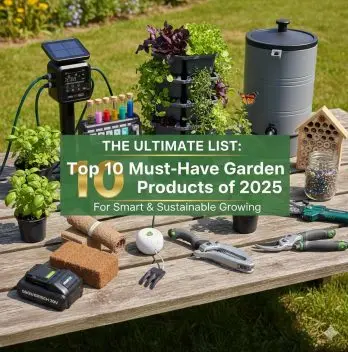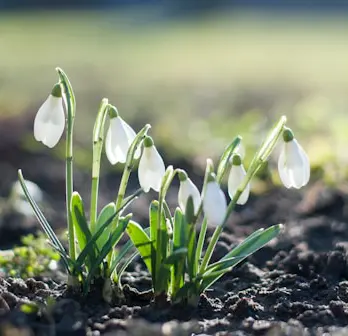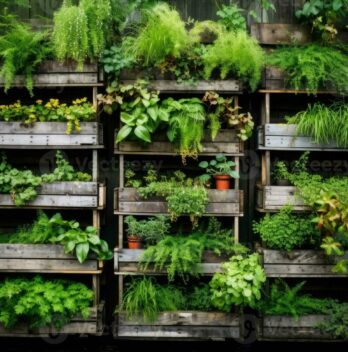Have you been warned of the risks of composting weeds and you don’t know if you can compost them? Weeding is a dreaded garden activity because it might be hard to get rid of these longlasting and resistant plants. Weeds are plants hard to pull, they give plenty of seeds and multiply everywhere. Sometimes weeds climb on other plants, and in some cases, they can even smother others to death by weight or in a parasitic relation.
We find ourselves weeding through the garden every other day, but weeds keep popping up. We then find ourselves facing a new problem: what to do with the weeds we just pulled? Can you compost weeds?
Can You Compost Weeds?
Weeds never die is a common saying, but what are weeds and why do they “never die”?

Many say weeds shouldn’t be thrown into the compost bin. Weeds have very resistant seeds, that can remain alive even above 65°C (or 149°F). Most composts get to only 45-50°C (°F), because of many factors, such as:
- Small size, warm composts need to be at least 1m3 (27 ft³).
- Not enough green organic matter was mixed in, in relation to the brown organic matter added. You can fix this lack of Nitrogen in the mix by adding more of the greens or even add some urine (with a concentrated and readily available nitrogen).
- Not turning it over often enough. How often do you turn it over? Once a week or once a month?
- The climate where you keep the compost is too dry, too wet, or too cold. This can set back the decomposing process in your compost
Composting of Weeds, how to succeed?
In order to succeed in composting weeds, the best thing to do is to observe the most common weeds in the location and learn how they look like in different life stages. Weed out as soon as you spot a weed in your garden, the sooner the better.
Once it flowers, the plant will start producing seeds very quickly, and decomposing the weeds in the compost may not be enough to inactivate the seeds. When you fertilize your soil with the uncomposted weed’s seeds, they will eventually find the conditions to germinate, making it a never-ending process of weeding.
Compost usually warms up, but in order to break the weeds seeds cycle, we must guarantee the heat to persist (above 65°C/ 149°F) during at least fifteen days in a row.
The Quick Guide To Composting Weeds Successfully
- Make sure you build a big compost pile to ensure its proper warming process. The size of the compost container should be double the volume of the final compost you want to obtain. You may find very detailed instructions on how to build six different types of compost bins or containers and their optimum sizes in this article.
- Cut organic matter into small pieces when possible.
- Add enough brown organic matter to balance recently trimmed weeds (green matter). One bucket of green organic matter and one bucket of brown organic matter -or a bit more- is a good volume relation (1:1).
- Keep the moisture content between 40 to 60%. The compost mix should feel moist to the touch.
- Add chopped up weeds that have not yet flowered.
- Turn the compost over frequently (at least twice a month).
- Most importantly: compost weeds before they get to flower.
FAQs
Can weeds go in a compost bin?
Weeds are an organic material that will break down over time. There are several ways you can use weeds in your composting process.
One thing you can do is make a mulch from them, which will add nitrogen and organic matter to your soil. This will help keep weeds down while improving your soil.
You can also add the weeds to your compost bin. This will keep them out of your yard, where they can cause problems. If you are going to add them to your compost bin, be sure to let the weeds sit there for at least two weeks before adding them to the compost pile. This will give them time to decompose. You may not be able to use your compost bin as often if you have a lot of weeds in it. A lot of weeds can be very hard on a compost bin, causing it to become hot and smelly.
If you have a lot of weeds, you may want to try using a worm bin instead. Worms are much better at breaking down the weed seeds than a compost bin is.
Why do people not compost weeds?
The most common reason people avoid composting weeds is that they’re afraid of creating a toxic stew. They worry about mixing plant material and having to filter out the weed seeds. The truth is, you don’t have to worry about this. There are two ways to compost weeds: first, you can let the weeds decompose in place, and second, you can remove them and compost them separately.
If you choose the first option, simply leave the weeds where they are, because they’ll naturally break down into humus in time. If you choose the second option, you can remove weeds from your compost pile, then separate them from the rest of the compost with a screen or a metal strainer. If you do this, you’ll need to add a little extra water and oxygen to the pile, but it’s not that difficult. In either case, you don’t have to worry about weed seeds.
They’re sterile when they germinate, so you can just put the compost directly into the soil. In fact, many gardeners use a single-composting system for all their organic matter. If you’re looking for a simple solution, then this is a great way to go. You’ll save time by doing it all at once, and you won’t have to worry about keeping separate piles of food waste, yard trimmings, and manure.
Why is it a good idea to compost weeds?
Composting weeds is a great way to help our environment. It will help to keep your garden free from nasty weeds, it will also help the environment by helping to remove excess nitrogen from your garden and helping to reduce the amount of water needed for the garden. Composting weeds can help with the process of recycling, weeding, pest control and fertilizing. Composting weeds will help you to save money by not having to buy weed killers.
Composting weeds will help you to grow more plants, it will also help you to grow healthier plants and you will notice that your garden will be healthier than ever before. Composting weeds will help to increase the amount of nutrients in the soil and it will help to make sure that your soil is rich and healthy for your plants. You can find the best place to compost weeds at your local gardening store. They have different methods for composting weeds and they also have all the right tools to help you get started.
Why should you not compost weeds?
– Do not compost your weeds if you have a dog or cat in your house because the weed seeds could get into their food and they could get sick.
– Do not compost your weeds if you have a pet because the weed seeds could get into their food and they could get sick.
– Do not compost your weeds if you have any allergies to weeds or other plant material because the weed seeds could get into their food and they could get sick.
– Do not compost your weeds if you live in an area that gets a lot of rain because the weed seeds could get into their food and they could get sick.
Why Are Weeds Good For The Garden?
The weeds of your garden have functions in the ecosystems.
1. Weeds are plants designed by Nature to regenerate soils. They like to grow especially in borders, eroded or poor soils, and besides trails and roads.
2. Weeds are very resilient plants that prepare the soils for other more nutrient demanding plants in ecological succession.
3. When
4. Weeds tend to be highly medicinal, nutritious, or can be extremely toxic.
5. Many weeds have superpowers to absorb high quantities of certain minerals from the
6. Many animals develop a special relation to these kinds of plants and seek them for specific therapeutic results, including us humans.
7. They have accompanied humans during the ages and have a history of being related to witches, wizards, healers, and shamans all around the world.

If you have more tips, leave in the comments what has worked for you when you compost weeds from your garden.
Go often to the house of thy friend, for weeds soon choke up the unused path.
– Scandinavian proverb




